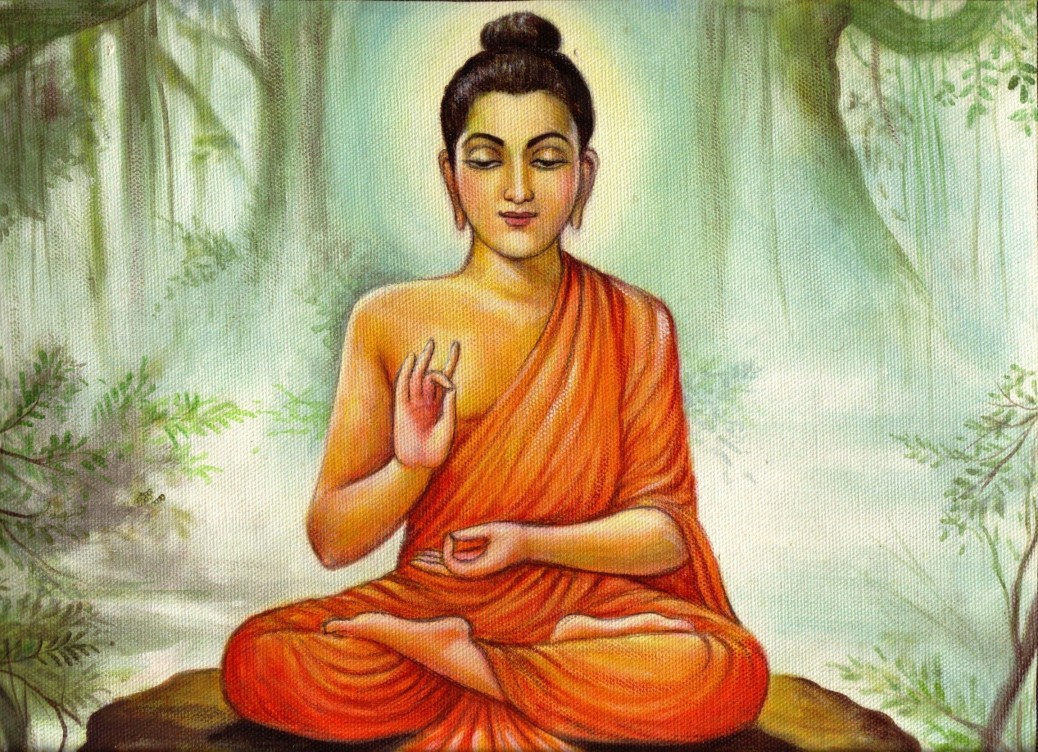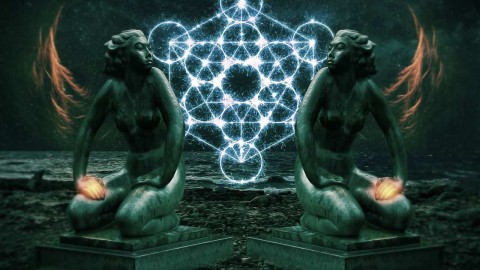Buddha was passing through a village and the people came and they insulted him. And they used all the insulting words that they could use — all the four-letter words that they knew. Buddha stood there, listened silently, very attentively, and then said, “Thank you for coming to me, but I am in a hurry. I have to reach the next village; people will be waiting for me there. I cannot devote more time to you today, but tomorrow coming back I will have more time. You can gather again, and tomorrow if something is left which you wanted to say and have not been able to say, you can say it to me. But today, excuse me.”
Those people could not believe their ears, their eyes: this man has remained utterly unaffected, undistracted. One of them asked, “Have you not heard us? We have been abusing you like anything, and you have not even answered!”
Buddha said, “If you wanted an answer then you have come too late. You should have come ten years ago, then I would have answered you. But for these ten years I have stopped being manipulated by others. I am no longer a slave, I am my own master. I act according to myself, not according to anybody else. I act according to my inner need. You cannot force me to do anything. It’s perfectly good: you wanted to abuse me, you abused me! Feel fulfilled. You have done your work perfectly well. But as far as I am concerned, I don’t take your insults, and unless I take them, they are meaningless.”
When somebody insults you, you have to become a receiver, you have to accept what he says; only then can you react. But if you don’t accept, if you simply remain detached, if you keep the distance, if you remain cool, what can he do?
Buddha said, “Somebody can throw a burning torch into the river. It will remain alight till it reaches the river. The moment it falls into the river, all fire is gone — the river cools it. I have become a river. You throw abuses at me. They are fire when you throw them, but the moment they reach me, in my coolness, their fire is lost. They no longer hurt. You throw thorns — falling in my silence they become flowers. I act out of my own intrinsic nature.”
This is spontaneity. The man of awareness, understanding, acts. The man who is unaware, unconscious, mechanical, robot-like, reacts.
Be Self-Alert
Budhha’s this story will change totally our definition of spontaneity. General meaning of spontaneity is natural and unconstrained; unplanned.
For me Spontaneity is my every moment’s preparation to be self alert. If we miss our preparation to be self alert in every moment, our act will come from unconscious. If we prepare ourselves to be self alert every moment our act will be natural. All of us act natural but if we are unconscious towards ourselves our act is unconscious without any love, compassion and life in it. If we have practiced self-alertness then our act is conscious with love, compassion and life into it.
Be spontaneous, but you can be spontaneous only when you are very aware. Otherwise you will become an accident – one moment going to the north, another moment going to the south. You will lose all direction.
A spontaneous man is ready to respond to each moment. Sometimes some may see that he is moving to the north, and sometimes others may see that he is moving to the south, but his inner direction remains absolutely certain. His inner direction remains arrowed. He may have to adjust to circumstances, but once adjusted, he again gains energy, momentum, and starts moving towards his direction. He has a feel for the direction, but that feel comes only when you are very, very alert.
Learning from the story Too Late: Be Self-Alert
Experience Learning
We can start practicing as follow:
While you are awake – the moment you wake up, immediately catch hold of the thread of remaining alert and conscious, because that is the most precious moment to catch the thread of consciousness. Many times in the day you will forget – but the moment you remember, immediately start being alert. Never repent, because that is a sheer wastage of time. Never repent, ‘My God, I forgot again!’
Catch hold again of the thread of awareness. Slowly, slowly you will be able to be alert the whole day – an undercurrent of awareness in every act, in every movement, in everything that you are doing, or not doing. Something underneath will be continuously flowing.
Even when you go to sleep, leave the thread only at the last moment when you cannot do anything because you are falling asleep. Whatever is the last thing before you fall asleep will be the first thing when you wake up. Try it. Any small experiment will be enough to prove it. Just repeat your own name while you are falling asleep: half awake, half asleep, go on repeating. Slowly, slowly you will forget repeating, because the sleep will grow more and more and the thread will be lost. It is lost only because you are asleep, but underneath your sleep it continues. That’s why in the morning when you wake up and just look around, the first thing you will remember will be your own name. You will be surprised: Why? What happened? You slept eight hours, but there has been an undercurrent.
And as things become deeper and clearer, even in sleep you can remember that you are asleep. Sleep becomes almost a physiological thing and your spirit, your being, becomes a flame of awareness, separate from it. It does not disturb your sleep; it simply makes your sleep very light. It is no more the sleep of the old days, when your house was on fire and you went on sleeping – that was almost like a coma, you were so unconscious. Your sleep will become thin, a very light layer, and your inside will remain alert. Just as it has been alert in the day, it will be even more alert in the night, finally, because you are so silent, so relaxed. The whole nuisance world becomes completely silent.
Patanjali, the first man in the world to write about meditation, says that meditation is almost like dreamless sleep, but with only one difference. In dreamless sleep you are not aware; in samadhi, in the ultimate state of meditation, there is just a little difference – you are aware.











